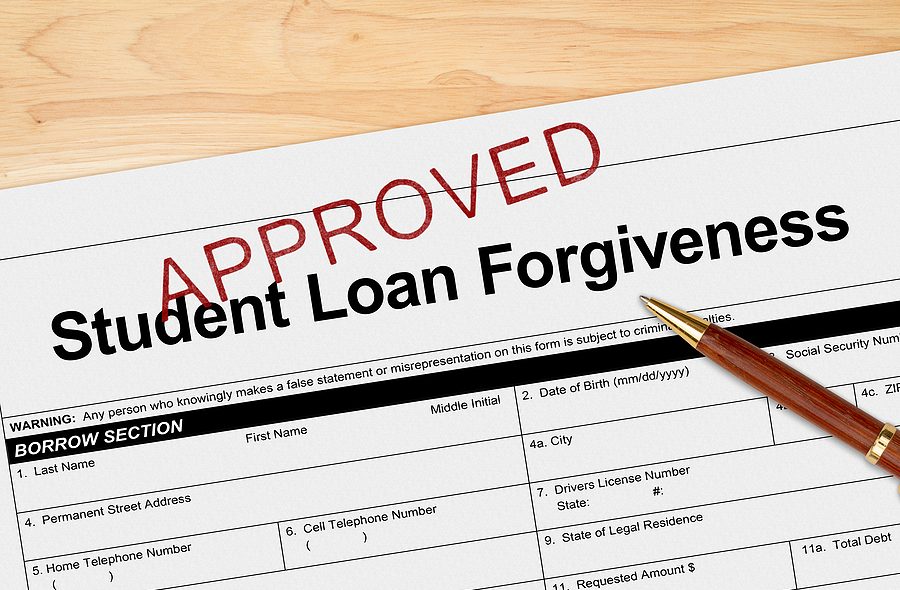The President’s new budget proposal seeks to make major cuts to important student loan forgiveness programs and affordable repayment plans. The proposal, officially announced this week, seeks to cut income-based loan repayment programs and eliminate the Public Service Loan Forgiveness Program.
President Trump’s budget will also eliminate subsidized student loans. It is estimated that in the 2016-2017 school year, approximately 5.7 million students have subsidized loans. The budget will also reduce the number of income-based repayment plans offered to students. These plans allow the borrowers to pay back their loans at a rate that is proportionate to their income. The budget sets to drop these student loan assistance programs from four to one. The one program that is left caps students’ monthly payments at 12.5 percent. Under most current income-based repayment programs, student borrowers pay 10 percent of their discretionary income.
Also, under this program, undergraduate student borrowers would end up having their loans forgiven sooner, dropping the timeline down from 20 years to 15 years. They would end up paying more per month under this program, but for a smaller length of time. On the other end of the spectrum, however, graduate students will not have their loans forgiven for 30 years.
The Public Service Loan Forgiveness (PSLF) program was created under the College Cost Reduction and Access Act of 2007 to encourage graduates to work in public service while offering them a benefit of eliminating their federal student loan burden. These public service positions include public school teachers, social workers for the state or health researchers. If the student borrowers work in these positions and continue making payments on-time for 10 years, they can have their loans eliminated. It is estimated that two-thirds of student loan borrowers have expressed an interest in the PSLF program. These students are reported as making less than $50,000 annually. Trump’s budget plans to eliminate this student loan forgiveness program entirely.
If this program is eliminated, many are worried that college graduates will be less likely to apply for and take public service jobs. This elimination will end with fewer public defenders, public school teachers, state social workers, legal aid providers, even law enforcement. With their pay being lower than what it would be in the private sector, these borrowers are not going to be able to meet their monthly obligations, especially if the government makes it more difficult for the student to apply for an income-based payment program.
In addition, the budget cuts funding for approximately 30 other higher education programs, including the Supporting Effective Instruction State Grants, the Federal Supplemental Educational Opportunity Grant, and 21st Century Community Learning Centers.
These changes would begin for students who borrow after July 1, 2019. The President’s proposal has been submitted to Congress and is subject to their approval. It is predicted that the budget will be modified; however, it remains to be seen what these modifications could entail. Student loan advocates hope that these modifications will restore some of the programs eliminated through this budget proposal. The alternative could mean very tough times ahead for student loan borrowers.
Click here to read more on this story.
For borrowers who are struggling with student loan debt, relief options are available. Many student loan borrowers are unaware that they have rights and repayment options available to them, such as postponement of loan payments, reduction of payments or even a complete discharge of the debt. There are ways to file for bankruptcy with student loan debt. It is important you contact an experienced Miami bankruptcy attorney who can advise you of all your options. As an experienced CPA as well as a proven bankruptcy lawyer, Timothy Kingcade knows how to help clients take full advantage of the bankruptcy laws to protect their assets and get successful results. Since 1996 Kingcade Garcia McMaken has been helping people from all walks of life build a better tomorrow. Our attorneys help thousands of people every year take advantage of their rights under bankruptcy protection to restart, rebuild and recover. The day you hire our firm, we will contact your creditors to stop the harassment. You can also find useful consumer information on the Kingcade Garcia McMaken website at www.miamibankruptcy.com.

